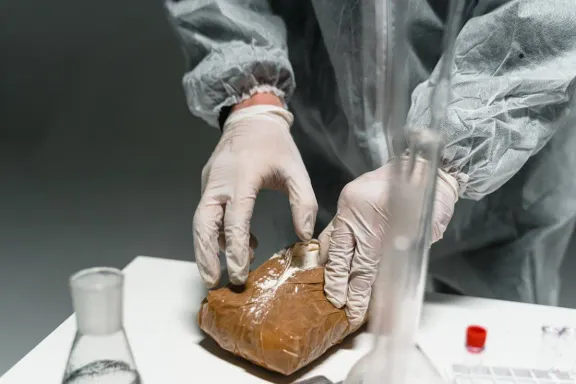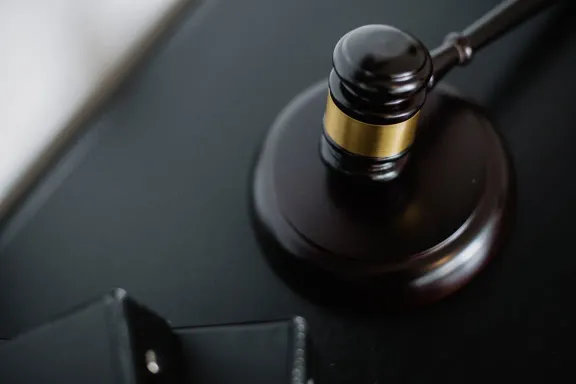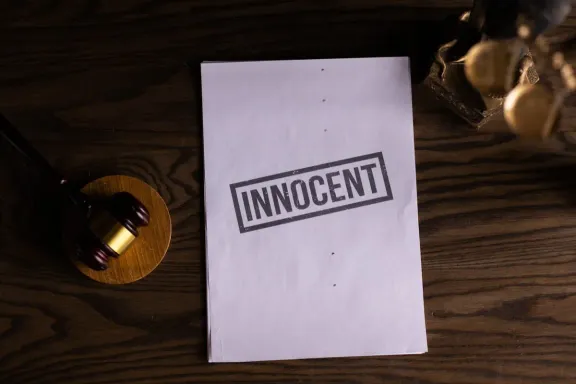Possession with Intent to Supply (PWITS) Sentencing Guidelines

Possession with intent to supply (PWITS) is a situation where authorities allege you have illegal substances in your possession and believe you intend to give or sell part or all of your possession to someone else.
Possession of illegal substances is a criminal offence on its own. However, PWITS is more serious in the UK legal context.
For this reason, understanding sentencing guidelines for possession with intent to supply is critical. The criminal justice system can hand out severe penalties if it finds you guilty.
Key Takeaways
- "Possession with Intent to Supply" (PWITS) involves possessing illegal substances with the intent to give or sell them to others, leading to severe penalties in the UK.
- Sentencing guidelines vary by drug class, offender role, and the amount of controlled substances involved.
- Class A drugs carry the most serious penalties, with potential life imprisonment, while Class B and C carry lesser but still substantial consequences.
- Aggravating and mitigating factors, such as criminal history or coercion, can influence sentencing severity.
- Proper legal representation can significantly impact the outcome of PWITS charges.
Understanding Possession with Intent to Supply Sentencing Guidelines is crucial for anyone accused of possessing drugs with the intent to distribute. PWITS is a serious offence in the UK, often carrying significant prison time and heavy fines.
Read on to discover:
- What defines intent to supply
- The various drug classes involved
- How the courts determine charges
- The possible legal consequences
What is ‘Possession with Intent to Supply’?
The Crown Prosecution Service (CPS) defines possession with intent to supply as “distributing” illegal substances without “proof of payment or reward.” As such, PWITS meaning is more encompassing than many offenders expect. Simply giving people drugs is a crime, even if you do it for free.
It can also include maintaining possession of drugs for someone else. For example, in R v Panton, TLR 27 March 2001, the Court of Appeal said that PWITS included the return of controlled drugs deposited with a “custodian.” However, this interpretation does not apply when one person buys substances on behalf of another person and distributes their share. Such cases revert to possession only.
Controlled Substances and Classification

A controlled drug is a class of substance deemed illegal in the UK (named in Parts I, II or III of Schedule 2 of the Misuse of Drugs Act 1971). These substances are sometimes permitted for medical purposes but cannot be sold or transferred by unlicensed individuals on the street.
The UK breaks drugs down into Classes A, B, and C, with those in Class A being the most dangerous based on their pharmacological properties. Here’s a rundown:
Class A: LSD, cocaine, heroin, ecstasy
Class B: Cannabis, ketamine, some amphetamines, mephedrone
Class C: GHB, anabolic steroids, some tranquilisers
As you might expect, intent to supply Class A drugs is the most serious charge because of the danger they present to individuals and the wider public. This is followed by conspiracy to supply class B drugs, and then C.
Because of this, Class A-related offences have the severest penalties. PWITS Class A drugs come with the longest maximum prison sentences, followed by PWITS Classes B and C. However, courts may also apply an unlimited fine, regardless of class.

“Supply” of drugs (as discussed) refers to distributing, providing, sharing or holding controlled substances with another person, including transferring drugs without financial payment or exchange. But how do authorities prove intent to supply? Our conspiracy solicitors have decades of experience in helping clients with solid defence for drug cases.
Courts accept various lines of evidence including:
- Possessing a large amount of controlled substances that a single individual couldn’t reasonably use
- Drug distribution paraphernalia
- Maintaining customer lists and contact information on phones, computers, or pieces of payment. This includes records of payments made for drugs. (We list these in more detail in the next section).
Intent to supply drug sentencing guidelines can depend to some extent on these factors. In fact, even being concerned in the supply of drugs can attract similar penalties.
How the CPS Decides Between Charges: Possession vs. Intent to Supply
The CPS – the agency that deals with drug-related crimes in the UK – determines whether to charge offenders with possession alone or PWITS. It does this based on the evidence available to it and whether it is in the public interest.
The CPS begins by reviewing the police evidence, such as physical items collected from the crime scene, witness statements and forensics. Then, depending on the quantity and type of drug possession it decides which charges are possible.
CPS officials usually apply the “evidential test” to determine charges regarding possession with intent to supply. However, they may also use the “public interest test,” asking whether it is in the public interest to upgrade possession to the more serious PWITS. Sometimes they won’t make a PWITS charge if the offender is a child or has mitigating circumstances.
To determine intent to supply, the CPS will consider:
- Communication between the offender and their customers that refer to drug sales (including coded language, mention of meeting places, etc.)
- Cash and financial records indicating profits from drug sales
- Marketing material related to drug sales, including contact lists
- Evidence of relationship with large international suppliers of controlled substances
- Witness testimony from suspected buyers
- Video surveillance showing interactions with customers that suggest drug-related interactions
- The quantity of controlled substances in storage if it goes beyond that which is reasonable for personal use
After weighing up these factors, the CPS will then come to a determination of the charge. Usually, it will pursue PWITS if it believes doing so is in the public interest.
Sentencing Guidelines for Possession with Intent to Supply (PWITS)

Possession with intent to supply sentencing guidelines depends on the drug class (alongside other factors).
Class A Drugs
PWITS Class A sentencing guidelines are the most severe. The Sentencing Council recommends a maximum of life imprisonment. However, most offenders receive something between a high-level community order (the minimum sentence for intent to supply Class A UK) and sixteen years in prison.
If PWITS Class A drugs is a first offence, this can be a mitigating factor. However, it may not be sufficient to spare offenders from jail.
Class B and Class C Drugs
Class B and C drugs come with lesser penalties. Those found guilty of PWITS of a Class B controlled substance usually get anywhere from a Band B fine to 10 years in custody, with a maximum custodial sentence of 14 years. For Class C, the range is from a Band A fine to 8 years in custody, with the same maximum as Class B drugs.
Where offenders land on sentencing depends on their “culpability” or the role they played in the crime. The Sentencing Council defines them as having a “leading role” if they direct substance trade on a commercial scale, have close links with the source, or abuse a position of trust or responsibility.
A “significant role” is where the offender has operational management within the chain, involves others in drug distribution, and expects to earn a significant financial reward from their activities. “Lesser roles” include performing a limited function in a drug organisation, having low awareness of the operation’s scale, or having limited expectations of financial advantage.
Sentencing also takes the quantity of controlled substances in the offender’s possession into account. The greater the supply, the more severe the penalties. For example, possessing more than 5 kgs of cocaine is a Category 1 quantity (with the most severe sentencing), while having less than 100g of cannabis is Category 4 (with the least severe punishments).
First Offence vs. Repeat Offences

Committing a previous PWITS offence is an aggravating factor, according to the Sentencing Council. Therefore, judges may increase the sentence to the upper part of the recommended range.
Possession with intent to supply first offence in the UK is less severe. This applies to possession of class A drugs first offence cases also. However, there are no hard-and-fast rules here and decisions are at the judge’s discretion.
We have a post dedicated to answering “Do first time drug dealers go to jail in the UK” if you would like more information.
Related Offences: Being Concerned in the Supply of Drugs
Being concerned in the supply of drugs is a related offence to PWITS. Here, the prosecution must prove a person intended to supply controlled substances even if they didn’t handle drugs themselves. According to the CPS, this offence involves actions “preparatory to actual supply.”
Concerned in the supply of Class A drugs sentencing guidelines are similar to PWITS. The maximum sentence can extend to life imprisonment. Similarly, being concerned in the supply of Class B or C drugs can lead to a custodial sentence of up to 14 years, an unlimited fine or both.
Being concerned in the supply of drugs over PWITS in UK law may apply when an individual facilitates the supply of controlled substances without physically possessing them. For example, it could apply to a situation where they facilitate the management of drug supply, directing dealers on the ground, or providing facilities for storage and transport, aiding and abetting those involved and helping to violate drug trafficking laws.
Aggravating and Mitigating Factors in Sentencing

Aggravating factors and mitigating factors can affect the length and severity of sentences. The Sentencing Council provides advisory sentencing guidelines based on:
- The drug type in question (Class A, B, or C)
- The role the offender played (leading, significant, or lesser)
- The quantity of drugs (Category 1 (the most), Category 2, Category 3, and Category 4)
Within these, the court can decide how severe the sentencing can be, accounting for the above judicial considerations. The Sentencing Council will often specify a “starting point” and then a “category range” for a specific PWITS crime (i.e. a starting point of 18 months custody with a category range of 1 to 3 years, depending on mitigating circumstances).
Factors aggravating sentencing include:
- A history of criminal activity or previous drug supply convictions
- Committing offences on bail
- Exploiting children in the supply of controlled substances
- Using people under 18 to deliver drugs to third parties
- Using weapons in the procurement, distribution, or sale of controlled substances
Factors reducing sentencing include:
- Being younger (between the ages of 18 and 25)
- Becoming involved in drug supply due to pressure or coercion
- Being addicted to the supplied drugs in question
- Mistaking the drug type being supplied
- Only supplying drugs once (an isolated incident)
- Having a mental disorder or learning disability
- Having a serious medical condition that requires urgent, long-term treatment
- Cooperating with authorities after the discovery of drug operations
- Evidence of rehabilitation (i.e. exiting the drug trade)
Legal Representation for PWITS Charges
When facing PWITS charges, seeking criminal defence solicitors who can defend you is essential. Proper legal representation can help you prove your innocence or reduce the severity of sentencing.
That’s where MMA Law’s expertise in criminal defence is so helpful. We support you through the legal process and can potentially help you reduce sentencing severity by highlighting mitigating factors or proving you weren’t involved in drug supply at all.
FAQs About Possession with Intent to Supply (PWITS)
What evidence can lead to a PWITS charge?
Evidence that can lead to a PWITS charge includes large quantities of drugs exceeding what would be considered for personal use, drug paraphernalia (scales, packaging materials), communication with potential buyers, financial records showing drug sales, and witness testimony. Authorities may also consider coded messages and digital evidence, such as contact lists or payment logs.
How does the court assess an offender’s role in PWITS cases?
The court evaluates the offender’s role as either “leading,” “significant,” or “lesser” based on their level of involvement. A leading role involves directing or managing operations, while a significant role includes operational management without top-level authority. Lesser roles indicate limited involvement with minimal gain or knowledge of the operation’s full scale.
Does the quantity of drugs impact sentencing for PWITS?
Yes, the quantity of drugs significantly impacts sentencing. Larger amounts often indicate intent to supply and can lead to more severe penalties. Courts categorise drug quantities into levels, with higher quantities resulting in harsher sentencing, particularly for Class A substances.
What happens if a minor is involved in PWITS?
When minors are involved, sentencing is more complex. Courts often view adult exploitation of minors for drug distribution as an aggravating factor, potentially leading to increased sentences for the offender. Special considerations may apply for young offenders based on age and circumstances.
Can PWITS charges be downgraded to simple possession?
Yes, charges can sometimes be downgraded to simple possession if there is insufficient evidence to prove intent to supply. Defence solicitors can challenge the intent aspect, arguing that the drugs were solely for personal use or that evidence of distribution is circumstantial or lacking.
How can financial evidence impact a PWITS case?
Financial records, such as cash deposits, electronic payments, or ledgers detailing drug sales, are strong evidence of intent to supply. Such evidence can bolster the prosecution’s case, demonstrating that the accused was profiting from illegal activities.
What is the role of a defence solicitor in PWITS cases?
A defence solicitor works to protect your rights, challenge the evidence against you, and build a strong legal strategy. This can involve questioning the validity of searches, arguing lack of intent, or highlighting mitigating circumstances to reduce sentencing.
Is intent to supply limited to selling drugs?
No, intent to supply includes giving away or distributing drugs without financial gain. Sharing, holding, or distributing controlled substances, even without profit, falls under the scope of PWITS, as it contributes to illegal drug distribution.
How can someone prove mitigating factors in a PWITS case?
Proving mitigating factors involves presenting evidence such as personal circumstances, lack of prior criminal history, coercion, rehabilitation efforts, or low involvement in the offence. Expert legal representation can help gather and present this evidence effectively to reduce sentencing.
Can PWITS charges lead to a criminal record?
Yes, being convicted of PWITS results in a criminal record, which can have lasting consequences on employment, travel, and reputation. Avoiding or reducing these charges is critical, which makes having experienced legal support, like that from MMA Law, essential to navigating these challenges.
Conclusion
Possession with Intent to Supply (PWITS) is a serious offence in the UK that carries heavy legal consequences. Sentencing for PWITS depends on several factors, including the type and amount of controlled substances involved, as well as the offender’s role within the supply chain.
Class A drugs carry the most severe penalties, potentially resulting in life imprisonment, while offences involving Class B and C drugs come with significant but lesser sentences. The court considers various aggravating and mitigating factors, such as previous convictions, coercion, or a defendant's specific circumstances, which can further influence sentencing severity.
If you are facing PWITS charges, it is crucial to understand your rights and build a strong legal defence. Working with expert criminal defence solicitors can make a significant difference. Expert criminal defence solicitors, like MMA Law, can help to challenge the evidence against you. We can fight to prove mitigating circumstances, or show a lack of involvement in the crime. Engaging with legal professionals early in the process ensures you have the best chance at a fair defence and a more favourable outcome.
Key Points:
- PWITS Definition: Possessing controlled substances with the intent to distribute or sell is a serious offence under UK law.
- Drug Classes and Sentences: Class A drug offences carry the harshest penalties, with potential life imprisonment, while Class B and C drugs involve significant but lesser penalties.
- Factors Influencing Sentencing: The court evaluates the offender’s role, the quantity of drugs, and any aggravating or mitigating factors when determining sentences.
- Legal Defences: Potential defence strategies include proving a lack of intent, mistaken identity, coercion, or other mitigating factors.
- Legal Representation: Having an experienced solicitor is essential for building a strong defence and reducing legal consequences.
Resources for Further Reading:
- Sentencing Council Guidelines on Drug Offences
- Misuse of Drugs Act 1971 – UK Legislation
- Crown Prosecution Service (CPS) Guidelines
If you’re facing charges for possession with intent to supply, navigating the complexities of the legal process can be overwhelming. Contact MMA Law for expert legal representation and a tailored defence strategy. Our experienced criminal conspiracy solicitors are committed to protecting your rights and securing the best possible outcome for your case. Contact us today for a confidential consultation and take the first step toward safeguarding your future.
